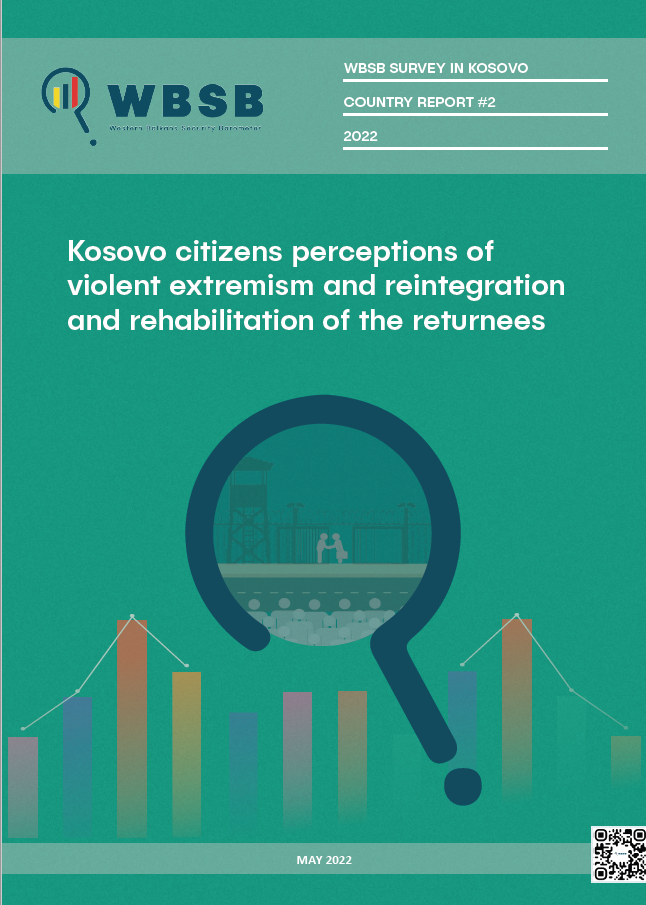5/05/2022

Kosovar Centre for Security Studies (KCSS)
National Endowment for Democracy (NED)
Shpat Balaj
Kosovo citizens continue to perceive violent extremism as a threat for the national security of Kosovo. Majority (76%) of the WBSB respondents believe that violent extremism presents a high threat or a threat for Kosovo. As per the forms of violent extremism, Kosovo citizens see the ethno/national based violence as the most threating, with 42 percent of respondents sharing the opinion that it presents a high threat for the security of Kosovo. Political based violence is perceived as a high threat for the security of Kosovo by 38 percent of the WBSB respondents, while religious based violence is perceived as threatening by 34 percent of the respondents. Kosovo, as other European countries, have faced challenges with respect to participation of citizens in foreign conflicts. The WBSB data shows that 37 percent of the respondents see citizens that participated in the war zones in Syria and Iraq and returned to Kosovo, as a high threat potential for the country.
Despite the challenges, it is important to note that the WBSB data shows that Kosovars support the work of the government of Kosovo to repatriate citizens from Syria. Accordingly, 65 percent of the respondents support the repatriation of all citizens that still remain in Syria, while 15 percent hold the opinion that only the remaining women and children should be repatriated. Positive attitudes are noted in citizens’ perceptions of what approach should be applied to those returning from conflict zones in Syria. 75 percent of the respondents believe that the approach/measures undertaken by Kosovo institutions should be focused on reintegration, as opposed to 11 percent that believe the returnees should be subject of punitive measures and seven percent of the respondents that believe that there is no need for any specific measure. A rather disturbing development is noted with respect to citizen readiness to accept and welcome back to the community the children that have been returned from Syria and Iraq For instance, the majority of the respondents (57%) would not allow their children to be socialized with the repatriated children as they believe that they may have an adverse effect on other children. One the other hand, 35 percent of the respondents would have no problem in allowing their children to be associated with the returnee children.
The data presented in the report derive from the Western Balkans Security Barometer (WBSB) survey. WBSB is a new regional initiative launched by KCSS in 2020, implemented in cooperation with the Belgrade Centre for Security Policy (BCSP) in Serbia and Center for the Study of Democracy and Governance (CSDG) in Albania, supported by the National Endowment for Democracy (NED). WBSB serves as an instrument to measure public perceptions in Albania, Kosovo and Serbia on different security-related issues. The findings demonstrate how citizens percept or are informed about the issues presented in this report. As such, the views presented in this report do not necessarily represent the views of the KCSS, BCSP, CSDG or NED.